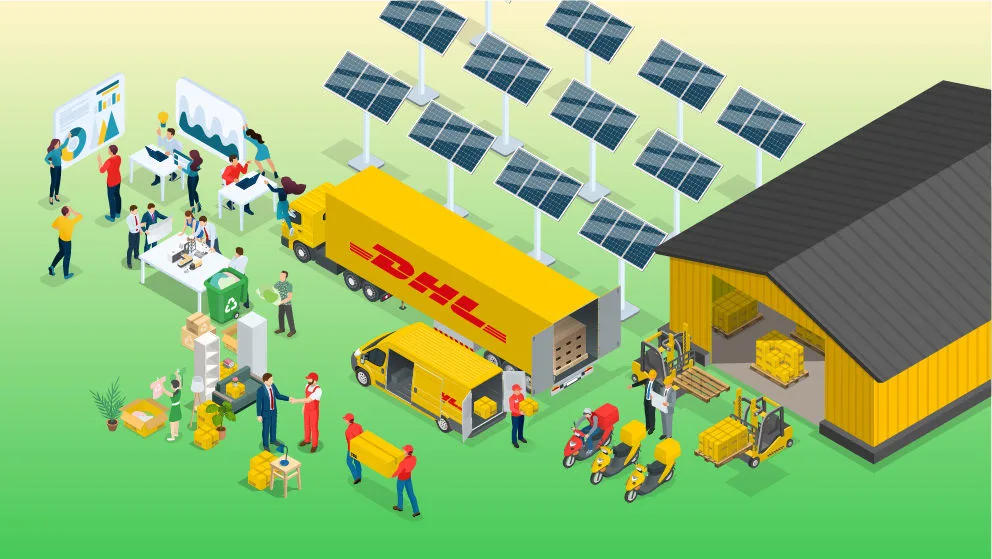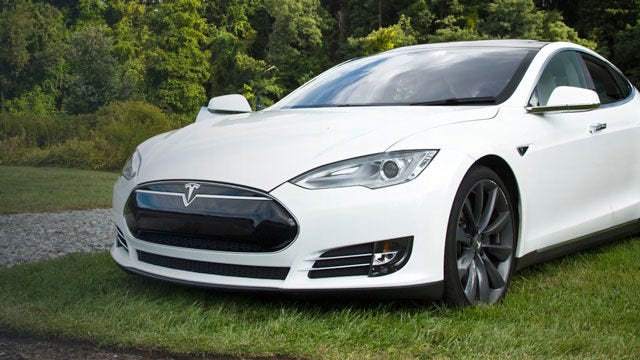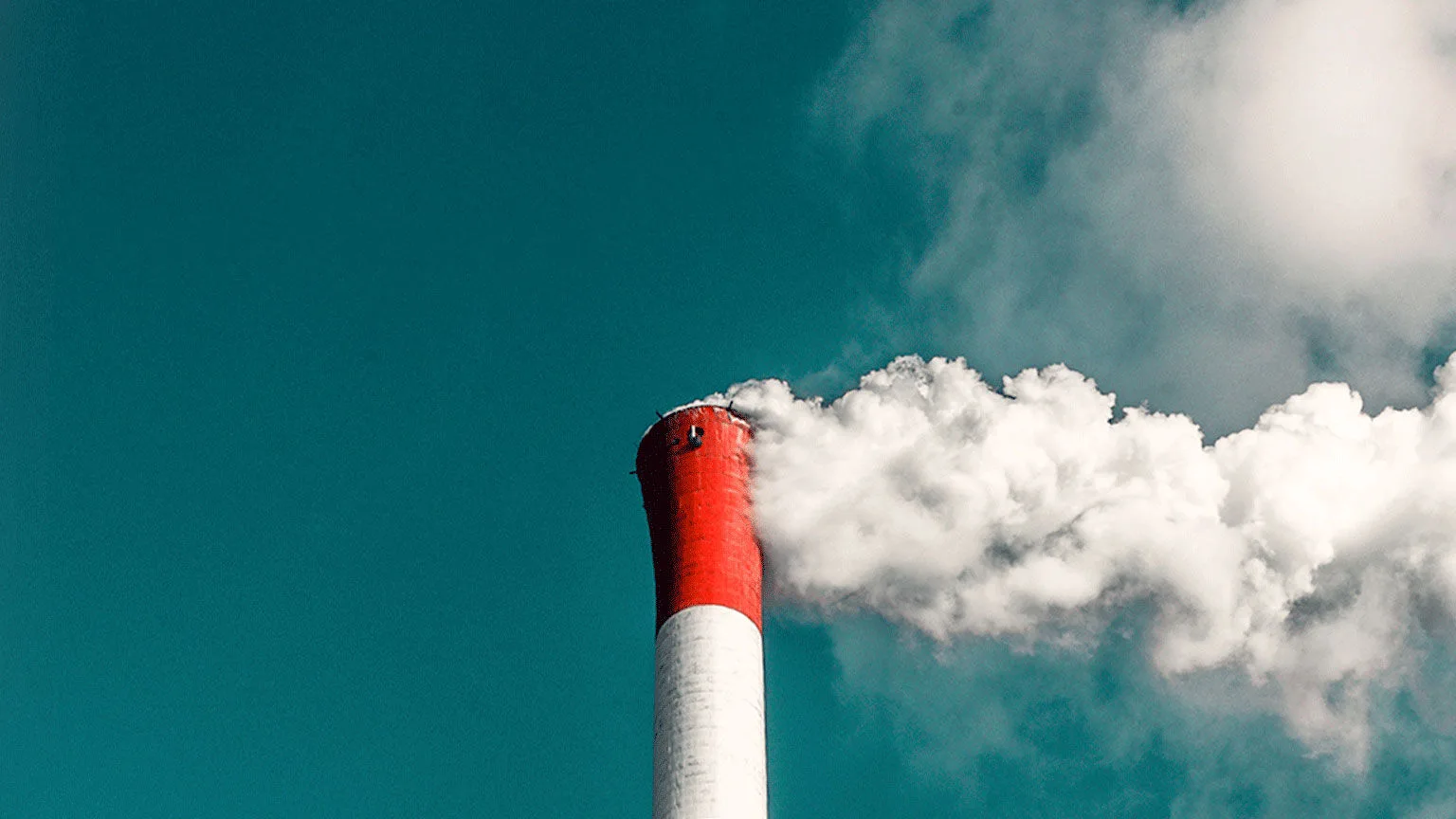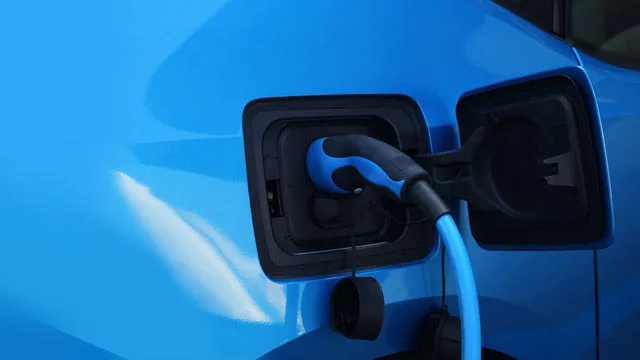
Taking charge of our environmental impact is no longer a choice, but a necessity. As businesses increasingly prioritise sustainability, understanding and reducing greenhouse gas (GHG) emissions across the supply chain becomes crucial.
However, navigating the complexities of emissions accounting can be challenging, especially when dealing with the intricate web of a global supply chain. To help explain this further, let's break down the three main categories of GHG emissions:
- Scope 1 emissions: Direct emissions from sources owned or controlled by a company (e.g., company vehicles, fuel combustion).
- Scope 2 emissions: Indirect emissions from purchased energy (e.g., electricity consumption).
- Scope 3 emissions: Indirect emissions from sources not owned or controlled by a company but occur in the value chain (e.g., transportation of goods by third-party logistics providers).
Scope 3 emissions are often the most complex and challenging to address, yet they represent a significant portion of many businesses' overall environmental footprint. To truly understand and tackle these emissions, we need to delve deeper into the intricacies of supply chains and logistics networks.
Drawing insights from our whitepaper, Sustainability in Motion: Understanding Carbon Footprint in Logistics and Supply Chains Across Asia-Pacific Regions, this article explores the significance of Scope 3 emissions within the dynamic Asia Pacific (APAC) logistics sector. We'll examine the specific challenges and opportunities in this region and showcase how DHL GoGreen Plus is leading the charge in creating a greener, more sustainable future for the industry.
1. Understanding the impact of Scope 3 emissions in the APAC logistics sector
Scope 3 emissions represent the most significant portion of a company's carbon footprint, often accounting for 70% or more of total emissions. To give you a clearer definition, these emissions encompass 15 categories, ranging from purchased goods and services to business travel and waste disposal. Within the APAC logistics sector, Scope 3 emissions are a growing concern, driven by the region's rapid economic growth and its pivotal role in global trade. Moreover, unlike Scopes 1 and 2, Scope 3 emissions can be difficult to measure and manage as information may not be as readily available. This can make it difficult for companies to ensure sustainability at every stage of the process.
Unfortunately, the logistics sector plays a critical role in reducing Scope 3 emissions, as it is a major contributor to GHG emissions globally. For instance, Australia's transportation sector contributed 5.9 metric tons of carbon dioxide emissions in March 2023.
The biggest generators of Scope 3 emissions within APAC's logistics landscape include:
- Manufacturing: Energy-intensive manufacturing processes and the transportation of raw materials and finished goods contribute significantly to Scope 3 emissions.
- Air freight: The reliance on aviation fuel, a major source of greenhouse gas emissions, makes air freight a significant contributor to Scope 3 emissions.
- Maritime shipping: Decarbonising maritime shipping presents unique challenges due to the reliance on fossil fuels and the long distances involved in international trade.
- E-commerce: The rapid growth of e-commerce has fueled an increase in transportation and logistics activities, further contributing to Scope 3 emissions.
2. DHL GoGreen Plus: Addressing Scope 3 emissions
DHL GoGreen Plus offers a tangible solution for businesses seeking to reduce their Scope 3 emissions. By opting for GoGreen Plus, businesses can actively contribute to a more sustainable logistics landscape. This is achieved through the utilisation of Sustainable Aviation Fuel (SAF), a cleaner alternative to conventional jet fuel that significantly reduces lifecycle carbon emissions. Additionally, GoGreen Plus invests in verified carbon reduction projects within DHL's own operations and supply chain, directly reducing emissions related to your shipments. This approach, known as carbon insetting, allows businesses to take responsibility for their environmental impact and support tangible emission reduction initiatives.
This innovative approach to sustainable logistics management offers numerous benefits. It helps businesses meet evolving environmental regulations and reporting requirements, ensuring compliance and demonstrating a commitment to responsible practices. Moreover, it aligns with growing consumer expectations for environmentally responsible brands, enhancing brand image and attracting environmentally conscious customers. DHL GoGreen Plus also offers flexibility, allowing businesses to tailor their carbon reduction strategies based on their specific needs and targets. Finally, it simplifies carbon footprint tracking and reporting, providing transparent and accessible data on emissions reduction and facilitating sustainability reporting.
There are two primary ways businesses can leverage DHL GoGreen Plus:
- Selecting the SAF option during booking: When booking your shipments, simply choose the GoGreen Plus service to utilise SAF in their supply chain and contribute to carbon insetting.
- Signing a contract: For businesses with ongoing shipping needs, DHL offers both Basic and Customized GoGreen Plus contracts, providing tailored solutions and comprehensive support for carbon reduction strategies.
Ultimately, DHL GoGreen Plus provides a clear pathway for businesses to take ownership of their Scope 3 emissions and actively participate in building a more sustainable future for the logistics industry.
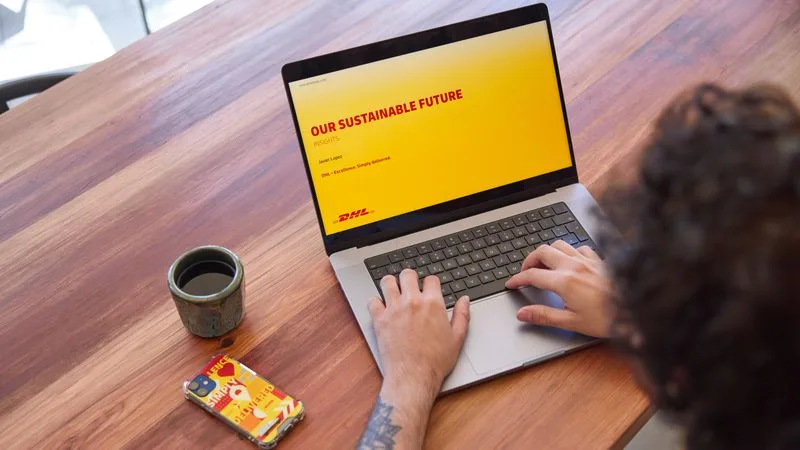
3. Case studies of DHL GoGreen Plus: Reducing their Scope 3 emissions across APAC businesses
As countries like Australia accelerate decarbonisation efforts through infrastructural and financial support, businesses are increasingly seeking ways to reduce their carbon footprint. Initiatives like the Clean Energy Regulator, which administers Australian Government schemes to measure, manage, reduce, and offset carbon emissions, provide incentives and frameworks for businesses to achieve supply chain sustainability. DHL GoGreen Plus has emerged as a key enabler in this journey, empowering businesses across diverse sectors to effectively tackle their Scope 3 emissions.
Yeonho Electronics
Country: South Korea
Industry: Electronics manufacturing
Yeonho Electronics, a leading electronics manufacturer in South Korea, partnered with DHL GoGreen Plus to reduce the carbon footprint of its international shipments. By utilizing SAF and participating in carbon insetting projects, Yeonho Electronics has significantly reduced its Scope 3 emissions, enhancing its sustainability profile and meeting the growing demand for eco-focused products. This commitment to sustainability has not only reduced their environmental impact but has also allowed them to meet the sustainability expectations of major clients like Samsung, LG, and Hyundai while maintaining operational and cost efficiency.
SCREEN Semiconductor Solutions
Country: Japan
Industry: Semiconductor manufacturing
SCREEN Semiconductor Solutions, a major player in the semiconductor industry, recognized the importance of addressing its Scope 3 emissions. The company had already set science-based emission reduction standards but faced challenges in reducing its Scope 3 emissions, especially with increased sales volume post-COVID-19. DHL GoGreen Plus and its carbon insetting approach helped bridge gaps in SCREEN’s sustainability strategy, allowing them to effectively reduce their carbon footprint associated with the transportation of its products and demonstrate its commitment to environmental responsibility.
The Board Factory
Country: Thailand
Industry: Surfboard manufacturing
The Board Factory, a renowned surfboard manufacturer in Thailand, sought a sustainable solution for shipping its products globally. The company aligns its production practices with environmental best practices but needed an effective method to track and communicate its environmental efforts. Through DHL Express' GoGreen Plus, The Board Factory found a way to measure and report on its Scope 3 carbon emissions and savings, validating its sustainability claims with data and supporting its practices of on-demand production, material reuse, and recycling.
Standard Chartered
Country: Singapore
Industry: Banking
Even in the financial sector, sustainability is taking centre stage. Standard Chartered, a leading international bank, has partnered with DHL GoGreen Plus to reduce the carbon emissions associated with its logistics and operations, demonstrating its commitment to responsible banking practices. By co-investing in SAF, they aim to cut aviation emissions by up to 80%. By supporting SAF, they're not only offsetting their own emissions with high-quality carbon credits but also contributing to the wider adoption of SAF within DHL's network, driving industry-wide change.
Reduce your Scope 3 emissions with DHL GoGreen Plus
Addressing GHG emissions is a shared responsibility, and in the APAC region, where economic growth and environmental concerns intersect, sustainable solutions are more crucial than ever. DHL GoGreen Plus offers a practical and impactful way for businesses to take charge of their Scope 3 emissions and contribute to a greener future. By integrating GoGreen Plus into their shipping logistics strategies, businesses can actively reduce their environmental footprint and demonstrate their commitment to sustainability.
Embrace sustainability and take a proactive step towards reducing your environmental impact with DHL GoGreen Plus. Create a business account and discover how DHL can help your business achieve its sustainability goals.









